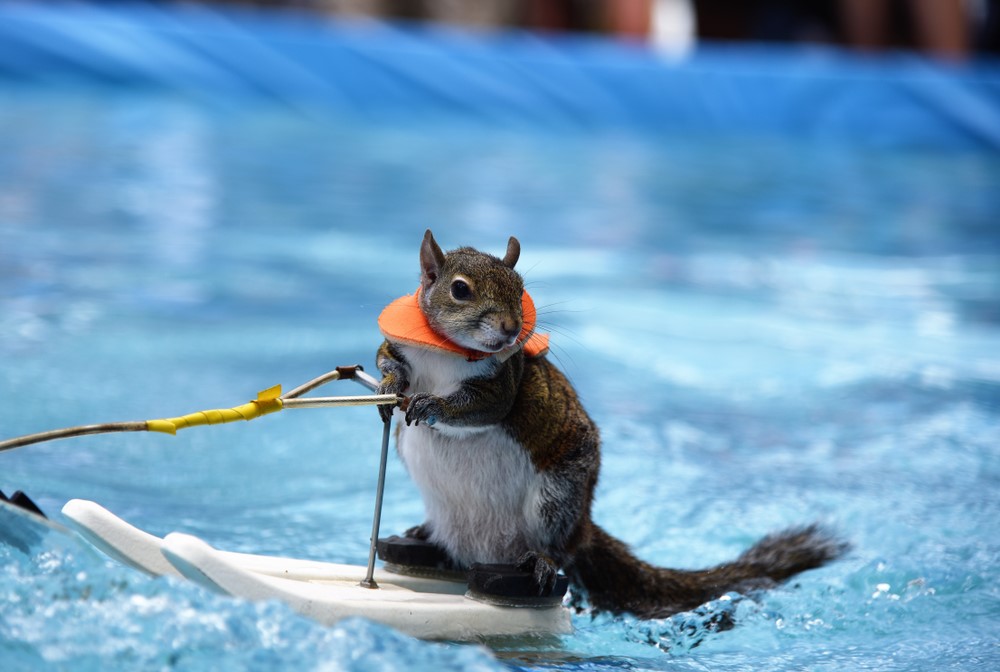How to Squirrel-Proof Your Boat

As boat owners prepare for the season, many are surprised to find unwanted guests—squirrels and other rodents—that have turned their vessel into a winter retreat. These critters can cause serious damage by chewing through wiring, upholstery, and even fuel lines.
Western Financial Group, a 100% Canadian company, can help you navigate your car, home, boat, and business insurance during this period of economic uncertainty.
To keep your boat in top condition, follow these squirrel-proofing steps.
Step 1: Inspect your boat for signs of squirrel activity
Before launching for the season, conduct a thorough inspection:
Look for entry points – Check around hatches, vents, and any small gaps where squirrels may have squeezed through.
Check for droppings and nesting materials – Squirrels build nests using leaves, insulation, or fabric, often in hidden areas like storage compartments or engine bays.
Inspect wiring and upholstery – Rodents love to chew on electrical wiring and seat cushions, which can create fire hazards and costly repairs.
Step 2: Block entry points and seal gaps
Once you identify potential entry points, take action to prevent squirrels from getting in:
Use steel mesh or hardware cloth – Cover vents and openings with strong materials that rodents can't chew through.
Seal small gaps – Use marine-grade sealant or expandable foam to close off any cracks or crevices.
Keep hatches and compartments securely closed – Always latch doors and covers when the boat is not in use.
Step 3: Discourage squirrels with repellents
Keeping squirrels away requires making your boat an unappealing place to nest:
Use natural deterrents – Peppermint oil, soap, vinegar, or predator scent repellents can discourage rodents from settling in.
Install ultrasonic devices – These emit high-frequency sounds that irritate pests but are harmless to humans.
Try motion-activated lights or sprinklers – If your boat is stored outdoors, these can scare off squirrels before they get too close.
Step 4: Store your boat properly in the off-season
A well-maintained storage routine can prevent infestations:
Keep your boat clean and free of food – Even small crumbs can attract rodents.
Use a high-quality boat cover – Ensure it fits snugly to prevent easy access.
Elevate your boat off the ground – If stored on land, use stands or blocks to make it harder for squirrels to climb aboard.
Check regularly – Periodic inspections throughout the off-season can catch problems before they escalate.
Does boat insurance cover rodent damage?
Check for coverage on animal damage – Some policies include coverage for rodent-related destruction, while others may exclude it.
Confirm coverage for electrical and mechanical damage – If squirrels chew through wiring, will your policy cover repairs?
Consider comprehensive boat coverage – This can protect against a wide range of risks, including vandalism, storms, and wildlife damage.
Speak to a Western Financial Group boat insurance expert about rodent coverage in your marine policy.
Keep your boat squirrel-free all year long
By taking proactive steps to squirrel-proof your boat, you can avoid costly damage and help ensure a trouble-free boating season. Regular inspections, proper storage, and preventive measures will help keep these unwanted critters at bay, allowing you to enjoy your time on the water.
Covering all your water adventures.
Get a boat insurance quote in minutes.
Where care and convenience come first.



